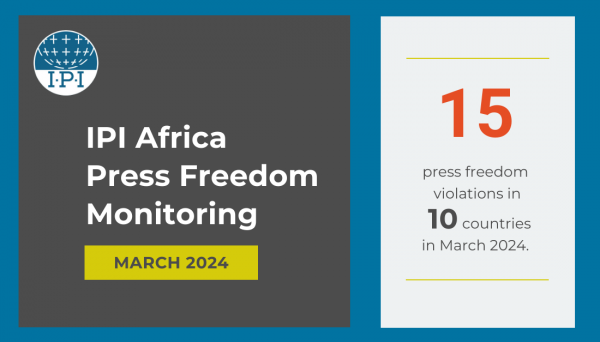The International Press Institute (IPI) today welcomed the passage late last month in Nigeria of a freedom of information bill, termed the Right of Information Act. Nigeria is the second country in West Africa to pass legislation that explicitly protects access to information, a universal human right.
“After more than ten years of pushing for this law, Nigerian journalists and citizens finally have the right to request and receive information from government institutions, which we firmly believe will help promote transparency, combat corruption and allow journalists to dig deeper,” said IPI Press Freedom Manager Anthony Mills. “We urge the appropriate institutions to implement the Act as quickly as possible.”
Critics have said that the Act should have been strengthened before it was signed into law. In February, press freedom legal experts Article 19 had called for the bill to “be amended to create an independent oversight body to enforce the law, clarify exemptions relating to economic interests, law enforcement and personal privacy, and include a comprehensive public interest test for all exemptions.”
Nonetheless, passage of the law is a great step in the right direction, as it guarantees “the right of any person to access or request information whether or not contained in any written form which is in the custody or possession of any public official, agency or institution, however described.” Further, any person has the right to institute court proceedings in order to compel public institutions to provide information.
Local media have invested much hope in the Act as a tool to help enforce government transparency and stamp out corruption. “For decades, gaining access to public information and documents was like going to war. Government operated like a mafia, secretive, and sheltered from the prying eyes of the public. Now, that culture of secrecy belongs to the past,” one opinion writer from This Day newspaper wrote, adding, “Even with all its weaknesses, the law contains far-reaching provisions capable of transforming government bureaucracy and by extension our lives as a people.”
President Goodluck Jonathan signed the bill into law on 28 May, according to news reports, ending a years-long process that began in 1999. The bill had been passed by both houses of the National Assembly in 2007, but was not signed by former President Olusegun Obasanjo, who refused on the grounds that the bill would affect national security, reports say.


